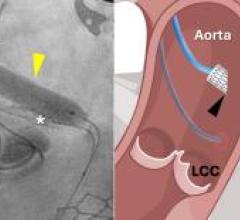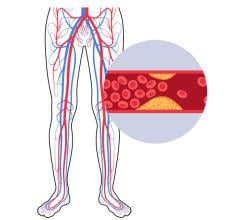The PAS-Port system allows attachment of bypass grafts without the need to clamp the aorta and hand-suture the vessels.
July 22, 2009 – Cardica Inc. today announced the full results of the PAS-Port system multicenter pivotal trial, known as the EPIC trial, were published in the July issue of the peer-reviewed publication The Journal of Thoracic and Cardiovascular Surgery. The PAS-Port system, which received 510(k) clearance from the FDA in September 2008, creates a secure connection, or anastomosis, between a vein graft and the aorta, the main artery in the human body, during coronary artery bypass grafting (CABG) procedures.
"The data published this month confirm that the PAS-Port system produces comparable patency, saves approximately five minutes per connection and eliminates the need to clamp the aorta required for hand-sewn connections," said John D. Puskas, M.D., chief of cardiac surgery at Emory Crawford Long Hospital in Atlanta and principal investigator of the EPIC trial. "Overall, Cardica's PAS-Port system provides a safe and reliable alternative to hand-sewing vessels during CABG procedures."
Cardica conducted the 220-patient pivotal, prospective, randomized trial at 12 sites in the United States and Europe. In the trial, two venous bypass grafts were randomly selected in each patient to be connected to the aorta. The PAS-Port system was used for one graft and the conventional hand-sewn technique for the other, for a total of 440 randomized grafts. Patients were scheduled to receive a follow-up angiogram nine months after their index procedure to determine patency (or degree of openness of the vein graft) for both the PAS-Port and control grafts. Over 90 percent of the patients received these angiograms.
The data published show that the PAS-Port system met the primary efficacy endpoint of noninferiority in patency at nine-month follow up compared to hand-sewn anastomoses. In addition, of the 12 major adverse cardiac events (MACEs) reported that may possibly be related to target vessel revascularization, four (33 percent) may have been related to the PAS-Port system with eight (67 percent) potentially related to hand-sewn anastomoses. During the trial, four patients had a stroke. In all cases of stroke, an aortic clamp was used for construction of a hand-sewn anastomosis.
For more information: www.cardica.com


 January 15, 2026
January 15, 2026 









